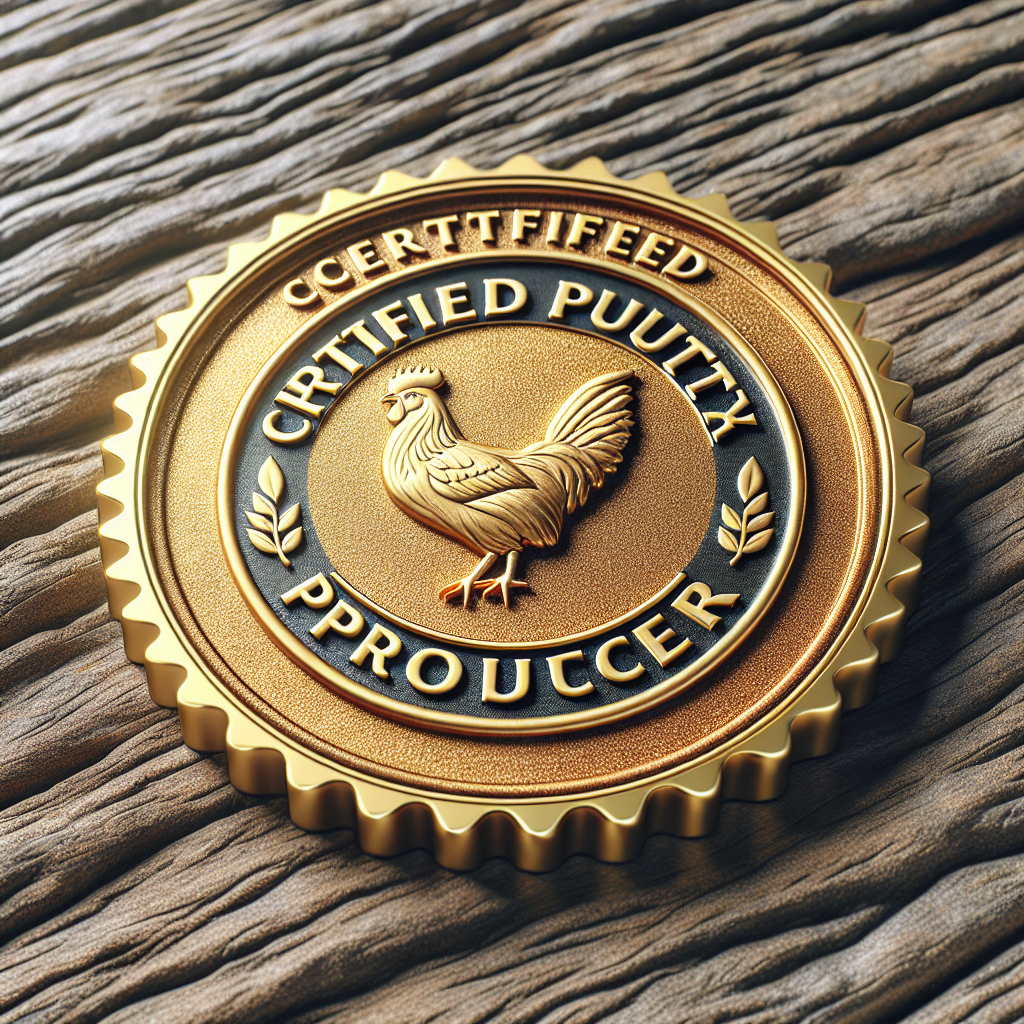Have you ever wondered what happens if you don’t follow the rules when it comes to poultry farming regulations? It’s important to understand the potential penalties or consequences that may arise from non-compliance. In this article, we will explore the possible outcomes that await those who fail to adhere to the regulations in the world of poultry farming. From fines to legal actions, let’s take a closer look at what awaits those who choose to ignore the rules.
Fines and Penalties
Non-compliance with poultry farming regulations can result in various penalties and consequences. One of the most common forms of penalty is monetary fines. These fines can be imposed on poultry farms that fail to meet specific regulatory requirements. The amount of the fine can vary depending on the severity of the violation and the jurisdiction in which the farm operates.
In addition to monetary fines, non-compliance can also lead to the suspension of operations. This means that the farm may be temporarily prohibited from carrying out its activities until the necessary improvements are made to ensure compliance with the regulations. Suspension of operations can have a significant impact on the farm’s productivity and financial stability.
Another possible consequence of non-compliance is the loss of license. Poultry farms must obtain the necessary licenses and permits to operate legally. If a farm fails to comply with the regulations, it may face the revocation of its license, which means that it will no longer be allowed to continue its operations. The loss of license can have severe implications for the farm, including the loss of its entire business.
Injunctions
In some cases, non-compliance with poultry farming regulations can result in injunctions. An injunction is a legal order that requires the farm to take specific actions to rectify the non-compliance. This could include implementing certain safety measures, improving animal welfare conditions, or addressing environmental concerns. Failure to comply with an injunction can result in further legal action and additional penalties.
Forfeiture of Property
Serious violations of poultry farming regulations can lead to the forfeiture of property. This means that the farm may be required to give up certain assets or property as a result of the non-compliance. The forfeited property could include land, equipment, or even animals. The purpose of this penalty is to serve as a deterrent and to ensure that farms are held accountable for their actions.
Legal Actions
Non-compliance with poultry farming regulations can also result in various legal actions. One common legal action is civil lawsuits. These lawsuits may be initiated by individuals or groups affected by the non-compliance, such as neighboring residents, consumers, or advocacy organizations. The purpose of filing a civil lawsuit is to seek compensation for damages caused by the farm’s non-compliance.
In some cases, non-compliance with poultry farming regulations can also lead to criminal charges. Criminal charges are usually filed by government authorities, such as environmental protection agencies or health departments. If found guilty, individuals responsible for the non-compliance may face fines, imprisonment, or both.
Furthermore, non-compliance can also result in class action lawsuits. Class action lawsuits are filed by a group of individuals who have been affected in a similar way by the farm’s non-compliance. These lawsuits can result in significant financial penalties for the farm and may also lead to changes in industry practices and regulations.
Harm to Animal Welfare
Non-compliance with poultry farming regulations can have serious consequences for animal welfare. One major concern is animal cruelty charges. Poultry farms that fail to provide appropriate living conditions, adequate space, or proper veterinary care for their animals may face charges of animal cruelty. These charges can result in fines, imprisonment, or both, depending on the severity of the violations.
Another consequence related to animal welfare is allegations of inhumane treatment. Poultry farms that do not adhere to welfare standards may be subject to allegations of mistreatment and abuse. These allegations can damage the farm’s reputation and lead to legal action, including animal welfare investigations and potential fines.
Environmental Impact
Non-compliance with poultry farming regulations can also have a significant environmental impact. One of the main concerns is water and air pollution. Improper disposal of waste and the excessive use of chemicals can lead to contamination of water sources and the release of harmful gases into the atmosphere. This pollution can harm ecosystems, wildlife, and human health.
Contamination of natural resources is another consequence of non-compliance. Poultry farms that do not properly manage waste, particularly manure, can contaminate soil and groundwater. This contamination can have long-lasting effects on local ecosystems, water quality, and agricultural lands.
Public Health Concerns
Non-compliance with poultry farming regulations can pose serious public health concerns. One common issue is foodborne illness outbreaks. Failure to meet safety and sanitation regulations can result in the contamination of poultry products with bacteria such as Salmonella or Campylobacter, leading to foodborne illnesses in consumers. These outbreaks can cause widespread sickness, hospitalizations, and even fatalities.
Additionally, non-compliance can contribute to antibiotic resistance. Overuse or misuse of antibiotics on poultry farms can lead to the development of antibiotic-resistant bacteria. This can pose a significant public health threat, as these antibiotic-resistant bacteria can infect humans and be difficult to treat.
Negative Public Perception
Non-compliance with poultry farming regulations can damage a farm’s reputation and lead to a loss of consumer trust. When consumers become aware of violations or mistreatment of animals, it can result in a negative perception of the farm and its products. Negative publicity, protests, and social media campaigns can significantly impact a farm’s sales and overall success.
Market Restrictions
Non-compliance with poultry farming regulations can also result in market restrictions. Export bans may be imposed by other countries if a farm fails to meet international standards or regulations. Import restrictions can also be enforced by authorities if the farm’s products do not meet the respective country’s regulatory requirements. These market restrictions can severely limit a farm’s access to profitable markets and impact its financial viability.
Increased Government Oversight
Serious non-compliance can lead to increased government oversight of poultry farms. This can involve more frequent inspections to ensure compliance with regulations. The government may also impose stricter regulatory requirements on farms, such as implementing additional safety measures or environmental controls. This increased oversight can result in higher compliance costs for poultry farms.
Workforce Consequences
Non-compliance with poultry farming regulations can have consequences for the farm’s workforce. In some cases, non-compliant farms may be forced to lay off employees to cut costs or to address financial difficulties resulting from penalties. Employees may also face disciplinary action if they are found to be directly involved in non-compliance or negligence. These consequences can have a significant impact on the livelihoods of the farm’s workforce.
Loss of Business Opportunities
In extreme cases of non-compliance, farms may be forced to close entirely. This can occur if the penalties and consequences are severe enough that the farm can no longer sustain its operations. Additionally, restricted market access due to non-compliance can limit business opportunities and revenue potential for the farm. These consequences can have devastating effects on farmers and their families who rely on the poultry farm for their livelihoods.




